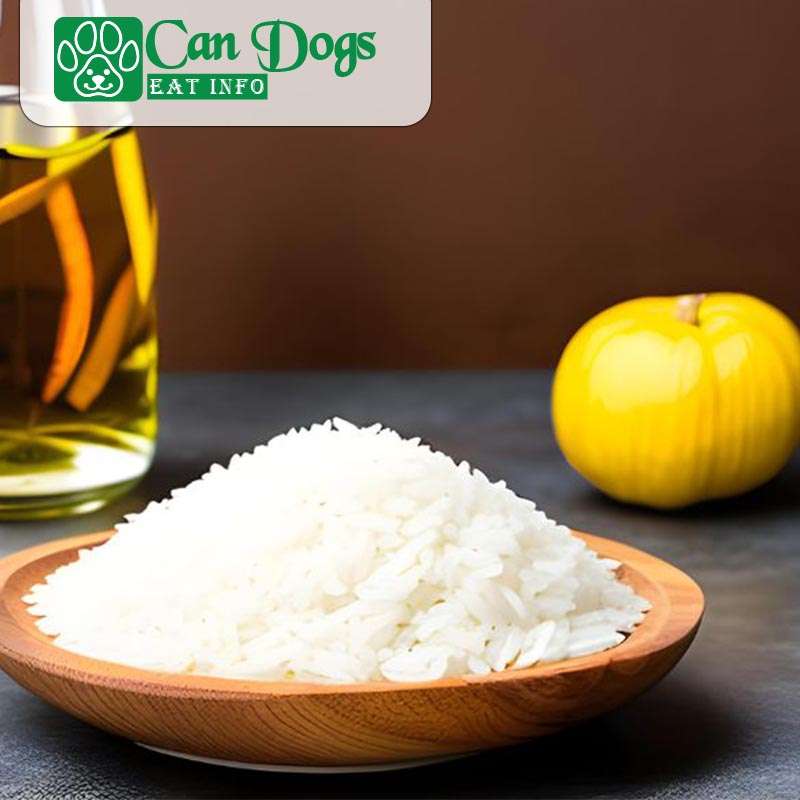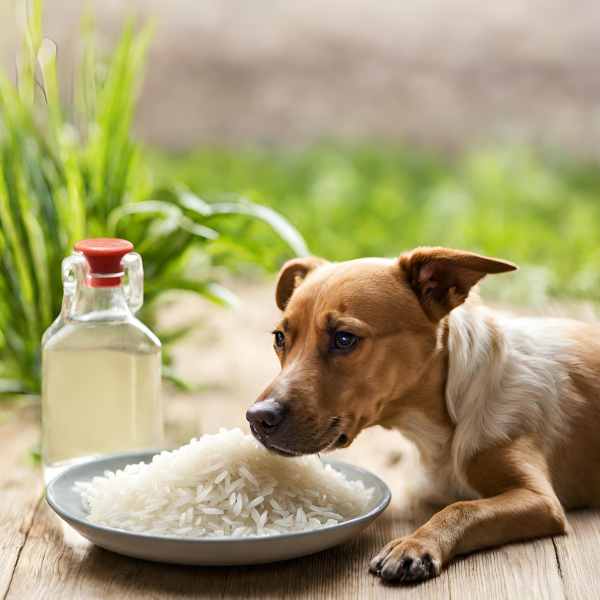Can Dogs Eat Rice vinegar? Yes, Rice vinegar is generally considered safe for dogs in small amounts. It is usually derived from rice, which is a safe food for dogs.
However, it’s recommended to use it in moderation due to its high sugar content. Rice vinegar should be used cautiously, and it’s advisable to consult with a veterinarian before adding it to your dog’s diet.
What is Rice Vinegar?
Rice vinegar is a type of vinegar made from fermented rice, and it has been used in many Asian cuisines for centuries.

It has a mild flavor that has a sweeter taste than other types of vinegar, like white or apple cider vinegar. Rice vinegar can also be used to add acidity and sweetness to dishes such as sushi or salads.
Benefits of Feeding Rice Vinegar to Your Dog
Here are just a few of the reasons why you should consider feeding your pup rice vinegar in moderation:

1. Rice vinegar can help improve digestion and reduce gastrointestinal problems by balancing out the pH levels in the gut.
2. It can help reduce inflammation and pain associated with arthritis or other joint issues.
3. The mild flavor makes it a great addition to any meal, adding an extra boost of vitamins, minerals, and antioxidants.
4. It may even increase your dog’s appetite if they’re feeling under the weather!
Potential Risks Associated with Feeding Rice Vinegar to Your Dog
As with benefits, there are also some health risks associated with rice vinegar. Too much eating of acidic food can cause stomach upset and gastrointestinal issues in dogs.

It is best not to give your dog any acidic food like rice vinegar if your has a sensitive stomach. Again it’s best to consult your veterinarian before introducing any new human food into your pup’s diet!
Serving Guide
If you’ve decided to add rice vinegar to your pup’s diet, there are a few tips you should follow:

Make sure you dilute the food before feeding as it can reduce the acidity and become easier to digest.
Always start with small amounts and then gradually increase. But if your dog is showing symptoms then it’s better to stop it.
If your dog becomes uncomfortable and has symptoms of diarrhea and vomiting, you can contact your vet for medication.
